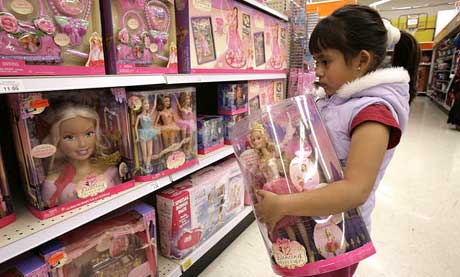Websites must act to prevent unscrupulous marketers trying to reach children, internet experts have warned.
With youngsters spending increasing amounts of time online and bans on advertising during children's TV programming, more companies are turning towards popular websites and virtual worlds as a way to influence younger consumers.
But one of the world's most popular websites for children, Habbo Hotel, said it has been forced to patrol its website to stop unwanted advertisers from hawking their goods to children.
Habbo, which consists of a series of 3D chatrooms, is visited by more than 7 million users a month - mostly teenagers or even younger.
The website runs some advertising deals with companies such as Coca-Cola, but co-founder Sampo Karjalainen said that some companies were pushing unsolicited advertising at its users.
"According to our rules, it's not acceptable," he said. "We co-operate with certain advertisers and sponsors ... but we've had to bring in strict rules and policies and hire people to moderate it and build filters, to protect the teens."
"I'm not a big fan of advertising in general. But in online communities brands have to provide something that's seen as valuable and isn't pushed in your face."
Investors are eyeing the children's market as a potential way to cash in on the latest dotcom boom.
One recent study suggested that more than half of children are expected to belong to a virtual world by 2011, double the numbers today, and it is estimated than more than £500m has already been invested in new virtual worlds by venture capitalists.
That growth has encouraged many brands to invest in new child-friendly online services.
Last week the BBC unveiled its plans for an online children's game called Adventure Rock, which will launch by the end of the year. The site will be free of advertising and will not contain chatrooms in an attempt to protect its users, who are likely to be aged between 9 and 12. Marc Goodchild, head of BBC children's interactive, said it was crucial to be aware of every aspect of child safety when working online.
"Kids wants to recreate their playground experiences at home," said Mr Goodchild. "But as a public broadcaster, it's paramount to make sure children are as safe as possible."
The BBC's move is the latest in a series of high-profile investments, most notably Disney's $350m acquisition earlier this year of Club Penguin, a social website popular among pre-teens.
Toy manufacturer Mattel opened its own virtual world dedicated to the Barbie doll - which now boasts more than 4 million registered users – and toys that interact with the web such as Stardoll and WebKinz have proved massive hits with children.
Some dotcom veterans said they were worried that the vast sums of money now involved meant that commercial pressures would lead some websites to cut corners and run more advertising aimed at youngsters.
"There are a lot of concerns about advertising to children in these places," said Michael Smith, the chief executive of MindCandy, a British internet company which is due to launch a virtual game for children later this month.
"The ways you can connect with kids is so much more powerful online. It's going to be tough for people to resist the lure of advertising money."
